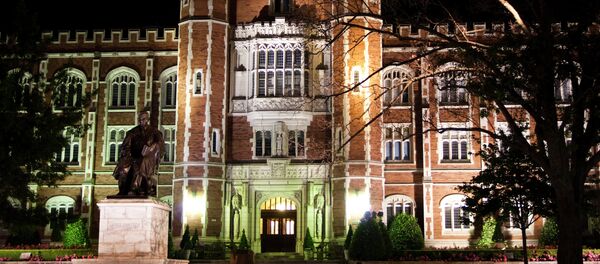According to a memo sent to the university’s president, the committee on Thursday will discuss this policy which it claims reflects “the core principles of respect, inclusion, academic freedom, and the free and open exchange of ideas.”
The committee says intolerance has “no place in the university” and it defines intolerance as “unwelcome conduct motivated by discrimination against, or hatred toward, other individuals or groups. It may take the form of acts of violence or intimidation, threats, harassment, hate speech, derogatory language reflecting stereotypes or prejudice, or inflammatory or derogatory use of culturally recognized symbols of hate, prejudice, or discrimination.”
In an article published online Tuesday by the Washington Post, professor Eugene Volokh outlines how the language in the committee’s policy is ambiguous and often contradicting.
For instance, one example of intolerance as defined by the policy is “Depicting or articulating a view of people with disabilities (both visible and invisible) as incapable.” This means that articulating a view that people with certain disabilities are incapable of certain physical activities would be intolerant.
Another example is “Depicting or articulating a view of ethnic or racial groups as less ambitious, less hardworking or talented, or more threatening than other groups.”
According to the statement, the policy “does not apply to the free exchange of ideas in keeping with the principles of academic freedom and free speech.”
But, here’s where it gets confusing
The above examples, Volokh points out, are legally protected under free speech.
The statement also reads the policy “shall not be interpreted to prohibit conduct that is related to the course content, teaching methods, scholarship, or public commentary of an individual faculty member or the educational, political, artistic, or literary expression of students in classrooms and public forums that is protected by academic freedom or free speech principles.”
A student newspaper is not a “public forum”-- legally defined as a government-owned property that has been opened for speech by the public at large, or by some objectively defined group of speakers on some defined topics.
So, is university-sanctioned censorship coming into play when a columnist fears expressing his or her political expression in the paper?
What about the “open exchange of ideas”?
Volokh asks, “Defending traditional exclusion of same-sex couples from marriage, by arguing that same-sex couples aren’t as good at raising children as opposite-sex couples? (I suspect that view is wrong, but we can only know it’s wrong if people are able to freely debate it.)”
“When these students and faculty members are told that certain views about disabilities, about race or ethnicity, or (by obvious extension) about sexual orientation, sex, or religion have ‘no place at the University’ — and violate others’ rights to be ‘free from’ such ‘expressions’ — will they feel free to openly discuss these topics? Or will they realize that they had best follow the orthodoxy?”







